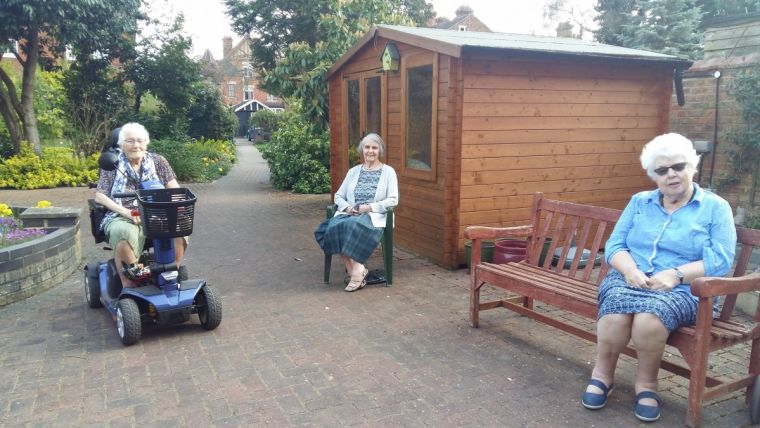Sharing outside our Christmas Bubbles to encourage the most vulnerable

When my granddaughter came home for the weekend from university with masses of laundry, we expected her to return, all washed and ironed, on Monday. Instead, she said she had signed herself out until the start of the new term in January. A few flats in the halls of residence were in lockdown, classes were all online, and some students were so afraid of catching Covid they were being tested for it every other week. It was depressing, she said, and she was glad to be home even though she had been so looking forward to going to university.
She was cheered up by helping to decorate the family's ancient Christmas tree. Our family will be celebrating Christmas together, including Grandma, in a bubble. Knowing this made me wonder: who will other grandmas be spending Christmas with this year, complicated as it is by Covid?
Around 400,000 older people live in residential care homes. The good news for them is that now the restrictions have been relaxed, those who have families will be able to spend Christmas with them, as long as everyone in that household has tested negative.
Other guidelines include social distancing, frequent hand washing and having a window open for a flow of fresh air. The guidance suggests that only the youngest, fittest residents go to a family home for Christmas.
It will be a relief for those who have been grieved that they haven't been able to touch or hug their loved ones for months because of the Covid restrictions. A handful of newspapers have published their stories and compared care homes to prisons exercising 'punitive' control, often distorting the facts. It simply isn't true that after an outpatients' appointment at a local hospital a resident would be put into the 'solitary confinement' of quarantine for two weeks, locked in her room, alone.
Residents may be kept in a protective bubble, but they are never locked in their rooms and left in 'solitary confinement'. They are kept occupied with activities they enjoy, as ex-Butlins Redcoat Nina Ambrose found when she volunteered as Activities Coordinator in the care home where her father, with dementia, was living. According to the Daily Mail, after seeing the positive effect she had on her father and others she's now considering a permanent shift to the care sector.
The National Care Forum estimates that it has cost care homes an average of £4,000 making adjustments to facilitate relatives' visits. And carers have worked hard during lockdown to keep residents contented, as well as safe. They've used tablets and smartphones to keep residents in touch with families and turned areas of the home into pop-up mini-markets and Ye Olde Inns, and more. They've been flown, via Google Earth, to destinations all over the world. Examples of their adventures can be seen here.
For those who belong to a bubble, Christmas will be joyful. But there are nearly four million individuals over the age of 65 who live alone, with just over half aged 75 and over. Experts note rising levels of anxiety and poor mental health amongst these, with feelings of loneliness increasing the risk of developing dementia. Deluged with warnings of Covid, many are afraid to leave home. In fact, some say they don't intend coming out even when the pandemic has ended.
Last Christmas I wrote that the best gift of all is you – yourself. This year it's even more important, as Covid rules have separated us from one another for months. Even now we're asked to be public spirited and continue to obey the rules. But even if we have to do it at a distance, let's share our time, our prayers and our thoughts in practical ways.
It's been a gruelling year for carers and care homes. Many carers have sacrificed their personal time, working long hours to cover those who have had to self-isolate.
Care homes that have links with churches have been blessed with little gifts from them, and cards saying that their work is appreciated, and they are being prayed for. You could so the same for care homes and housing schemes in your area. Simply knowing that they are appreciated can lift their spirits.
For the elderly who live alone, there are brilliant little cards online that can be downloaded to put through letterboxes at. They could be accompanied by an invitation to your Christmas service, now that churches are allowed to open over the festive season.
We may not be able to visit as freely as we would like this Christmas, and we may be in our individual bubbles, but we can give touches of encouragement that can make all the difference to others.
Louise Morse is a cognitive behavioural therapist with a masters' degree researching the effect of dementia caregiving on family members and older people. She is media and external relations manager for the Pilgrims' Friend Society, a charity founded in 1807 to care for and advance the Christian faith among older people.











